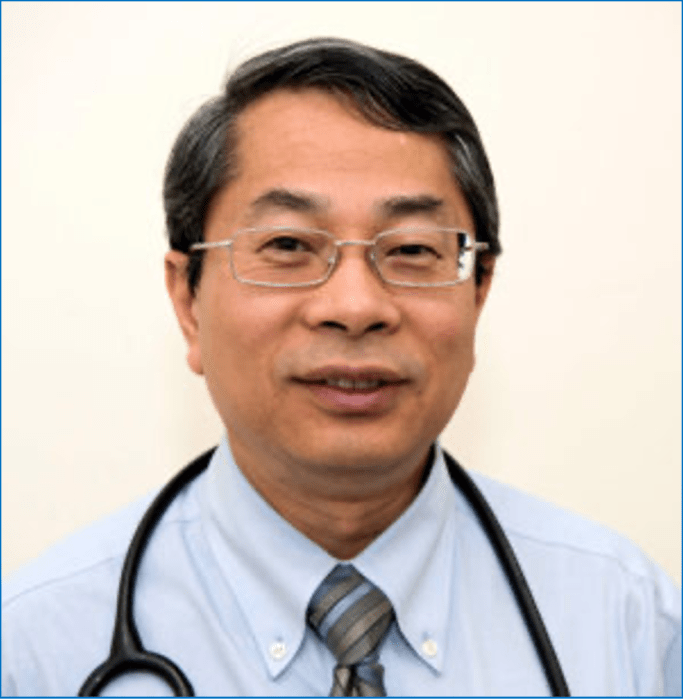Dr. Henry Chen is a community-based primary care physician. Dr. Henry has been in private practice for more than 25 years in New York City, where he manages the health care of patients in the Asian communities of Brooklyn and Manhattan. Dr. Chen graduated from Guangzhou Medical College in 1982, majoring in medicine, and graduated from the Sun Yat Sen University of Medical Science with a master’s degree in Surgery in 1987.

Jerome Cohen
President, Medical Society of the State of New York

Jerome Craig Cohen, M.D., was elected president of the Medical Society of the State of New York in April 2024. He graduated from Northwestern University Medical School in 1979 and has been a practicing gastroenterologist in Upstate NY since 1984. Dr. Cohen has served as MSSNY’s speaker of the house and is a 23-year member of MSSNY’s delegation to the AMA. He is a past chair of the AMA’s Council on Constitution and Bylaws.
Do you have advice for those interested in joining the health care field?
Spend some time volunteering in the field first, such as on a volunteer EMT squad, a candy-striper in a hospital, or a volunteer in an outpatient clinic. Only proceed if you like what you see, and if you have a passion for helping people in need.
How can policymakers support New York’s health care system?
Policymakers can support NY’s health care system by working to remedy the enormous challenges that deter many physicians from practicing in New York State. New York regularly receives the dubious distinction of being one of the worst states to practice medicine in the country, and we lose more than half of the physicians we train. Our patients bear the brunt of health care worker shortages, and we need New York to be more welcoming to physicians.
What is the most important lesson you’ve learned in your career so far?
Always test your assumptions. Beware assuming what you “know” to be true is actually true.
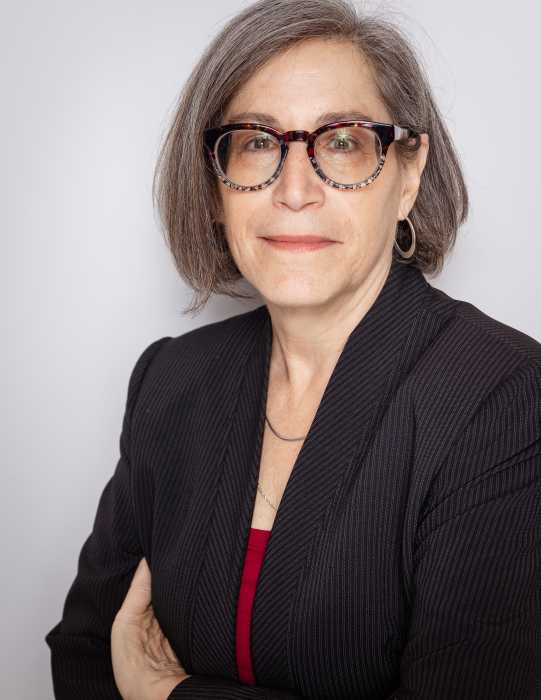
Louise Cohen
CEO, Primary Care Development Corporation

Louise Cohen is the CEO of the Primary Care Development Corporation (PCDC), a not-for-profit community development financial institution dedicated to catalyzing excellence in primary care to achieve health equity in disinvested communities. PCDC provides capital and technical assistance to primary care organizations, and advocates for improved and increased primary care access, capacity, quality, reimbursement, capital resources, and integration with behavioral health to improve health outcomes, create healthier communities, and increase health equity.
Do you have advice for those interested in joining the health care field?
My advice is to find opportunities to work in and learn about the different parts of the health care system – government, primary care, hospitals, social services, and other social drivers of health. Think big and strategic while also learning how systems actually operate and intersect. That way, you will succeed in helping your patients and communities get healthier while also becoming an effective advocate to improve systems, policies, regulations, outcomes, and equity.
How can policymakers support New York’s health care system?
At PCDC, we are focused on addressing systemic inequities in primary care access, quality, infrastructure, and cost, which lead to disparities in health outcomes along racial, ethnic, economic, and geographic lines. Primary care only gets about 5-7 cents of every health care dollar, and that is just insufficient. We are supporting an effort to increase New York State’s investment in primary care so that we can have a primary care-centric health care system.
What is the most important lesson you’ve learned in your career so far?
I’ve learned that patience is important, but so is a bias toward action. I’ve learned to carefully evaluate programs and activities but not get bogged down by past efforts. I’ve learned to be practical and aspirational. I’ve learned to understand the details and keep my eye on the strategic goal. This may seem contradictory, but in my experience, the very dichotomies they represent are the real key to success.

Chinazo Cunningham
Commissioner, New York State Office of Addiction Services and Supports

Dr. Chinazo Cunningham is an internal medicine and addiction medicine physician and has over 20 years of experience providing care, developing programs, conducting research, and training physicians, focusing on addiction treatment. She led one of the first clinics in the United States to integrate opioid addiction treatment in primary care. She has led several research studies and published numerous articles on treating addiction. She is a member of the National Academy of Medicine and has served on and chaired numerous national advisory committees.
Do you have advice for those interested in joining the health care field?
Careers in health care can be long journeys filled with sacrifices, but there is a tremendous opportunity to positively impact lives. What many don’t appreciate is the variety of careers that health care offers. Careers can focus on direct patient care, public health, education, research, advocacy, administration, and more. The clinical focus can also vary. In the field of addiction, because more health care providers are needed, they have great opportunities to make a difference.
How can policymakers support New York’s health care system?
As health care needs continue to grow, it is essential that policymakers fully invest in and support the addiction workforce to address a decades-long lack of investment. In addition, services must be accessible, equitable, and effective through an approach that embraces harm reduction, evidence-based data-driven strategies, and an equity lens. It is also critical to address the stigma that continues to be a major barrier to identifying and treating addiction, and investing in addiction services.
What is the most important lesson you’ve learned in your career so far?
Changing systems is a long and challenging process that requires a comprehensive and strategic approach. It is critical to use a data-driven approach and work with a team that understands clinical, financial, regulatory, and political implications. In addition, working with stakeholders, including those who provide services and people with lived experience, is essential. Finally, consistent, clear, and transparent communication about the change is vital.
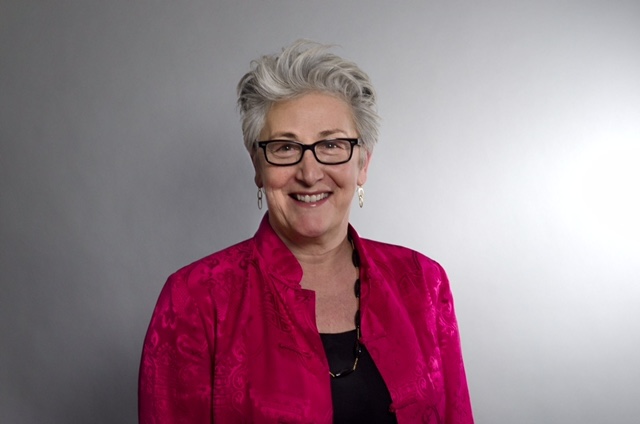
Lisa David
President and CEO, Public Health Solutions

Lisa David serves as the president and CEO of Public Health Solutions (PHS). Lisa champions initiatives addressing systemic health disparities in marginalized communities. Her leadership at PHS led to expanding access to vital health care services, including maternal/child health, reproductive health, and preventive services. Recently, she spearheaded the acquisition of a $150MM NYS 1115 waiver grant to address health needs in Brooklyn, Manhattan, and Queens. Her vision continues to steer PHS towards reducing health inequities for all NYers.
Do you have advice for those interested in joining the health care field?
Given the regulatory, operational, and access challenges for health care and public health, one must always remember to keep top of mind that your goal is to improve the life of each person you care for. That should drive everything that you do and will provide the greatest rewards.
How can policymakers support New York’s health care system?
Other industrialized countries spend much less than we do per capita and have vastly better outcomes/life expectancy. This is likely due to the fact that they spend 60 cents of the dollar on social care and 40 cents of the dollar on medical care. The U.S. does the reverse. Shifting this balance is the single most important thing that policymakers can do to improve the health of New Yorkers. A budget is a moral document.
What is the most important lesson you’ve learned in your career so far?
You need to be innovative to solve the problems that you will face, and even more important, you will need to have the courage to fight for these solutions. Don’t tinker around the edges. Go for the gold.

Michael Davoli
Senior Government Relations Director - New York, American Cancer Society Cancer Action Network, Inc

Michael believes everyone should have equal access to every opportunity to prevent, detect, treat, and survive cancer. He’s a leading advocate for passing evidence-based public policies across New York. He’s built coalitions and led campaigns that expanded access to biomarker testing and cancer screening and secured funding for cancer screening, tobacco control programs, and school physical education to combat obesity, as well as laws that require paid time off for cancer screening and treatment.
Do you have advice for those interested in joining the health care field?
For anyone interested in the policy side of health care, I recommend following your passion and volunteering on a campaign or with a policy organization like ACS CAN. I started my career as a college advocate and parlayed that into a professional career I love. Throughout my career, I have worked with many incredible advocates, many of whom started as volunteers inspired by their, and their loved ones’ life experiences.
How can policymakers support New York’s health care system?
Policymakers must make sure that every New Yorker has access to the care they need, no matter their income. Cancer doesn’t discriminate. Our policies shouldn’t either. They can start by passing legislation that ensures no one has out-of-pocket costs for cancer screening, and that patients can take paid time off during cancer treatment for themselves or a loved one’s treatment. Finally, we must increase access to patient navigation services across the cancer continuum.
What is the most important lesson you’ve learned in your career so far?
Relationships matter. I’ve been on calls with leadership who I’ve known since we first managed campaigns together years ago. Cultivating relationships as you grow your career and maintaining those relationships is one of the greatest things you can do to be successful and enjoy the work you are doing. Colleagues you worked with early in your career may now be a valuable resource on a current project or sit across from you in a negotiation.
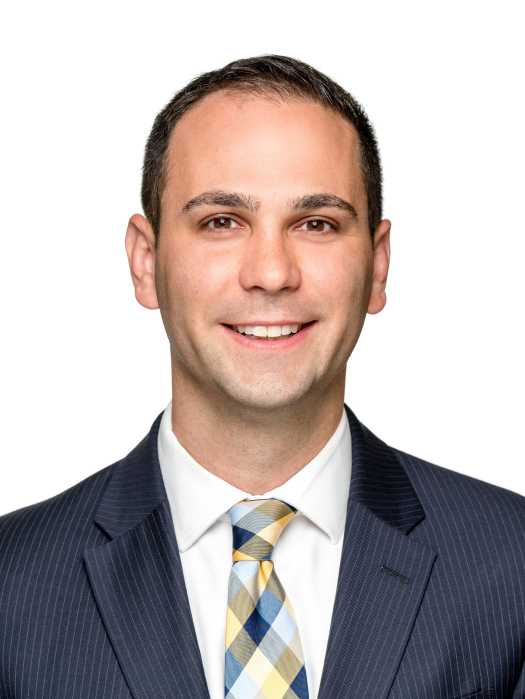
Victor DeStefano
President NY Commercial, Anthem Blue Cross and Blue Shield

Victor DeStefano is a dynamic health care executive with deep roots in New York. Guided by a patient-first approach, Victor fosters a culture of high performance within his team of over 240 associates serving as the market leader for 5,000 associates across New York, driving strategic business development and nurturing the company’s growth. His leadership style, reflecting his understanding of patients’ unique needs, has been a major factor in driving the state’s commercial market’s community-focused initiatives.
Do you have advice for those interested in joining the health care field?
Data, data, data. As we move into an era of AI, Large Language Models, and other forms of machine learning and analytics – our best asset becomes safely and securely using data to help a patient.
How can policymakers support New York’s health care system?
Policymakers can remain focused on how all players in the system can be required to share data safely and securely with each other for the purpose of positively impacting a patient’s health care journey. The more insurers, providers, PBMs, and other stakeholders can collaborate in a patient-specific data-focused manner, the better experience we can all provide to a patient.
What is the most important lesson you’ve learned in your career so far?
Put the patient first in all your decision making.
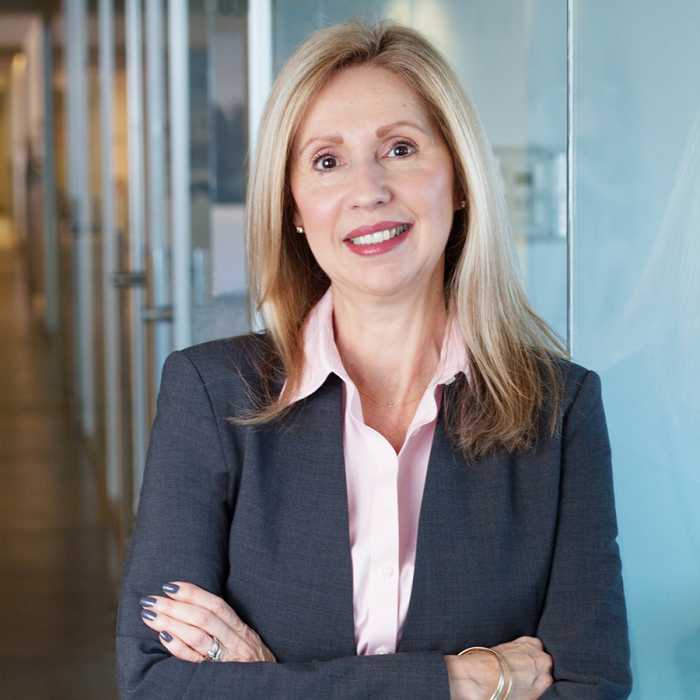
Emma DeVito
President and CEO, VillageCare

Emma DeVito is president and chief executive officer of VillageCare and VillageCareMAX Managed Care Plans. VillageCare is a community-based, nonprofit organization that offers managed care as well as post-acute and community-based programs. VillageCareMAX is one of the largest and fastest-growing plans in New York City.
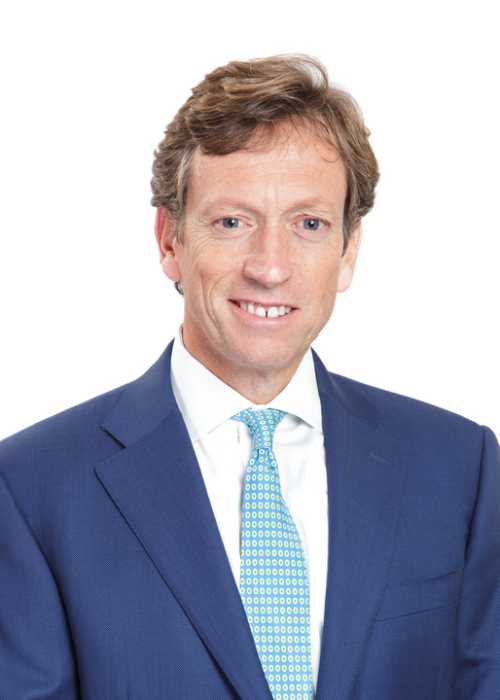
Sean Doolan
President, Hinman Straub

Sean Doolan, Esq. has 30+ years of experience in government relations, general counsel and administrative law. Doolan provides strategic, legal, regulatory and legislative representation for clients on a wide range of issues at every level of state government. He’s responsible for providing such representation for clients with interests like health plans, health care providers, insurers, and technology companies. Doolan is lead legislative and regulatory counsel on the most complex and intricate health care, insurance and transactional initiatives.
Do you have advice for those interested in joining the health care field?
It is a wonderfully rewarding field with a myriad of complex problems. Be a problem solver. Try to fully understand the complexities of an issue and then strive to be an innovative agent for change in solving the problem.
How can policymakers support New York’s health care system?
To engage with all stakeholders prior to acting and to remain flexible to changing positions as situations and facts are learned. Embrace creative solutions.
What is the most important lesson you’ve learned in your career so far?
Many “most important lessons”; it is a list that continues to grow. Perhaps at the top of the list is to follow the idiom: Victory has a thousand fathers and defeat is an orphan. Be gracious enough to allow others to be “fathers” and bold enough to be an occasional “orphan”.
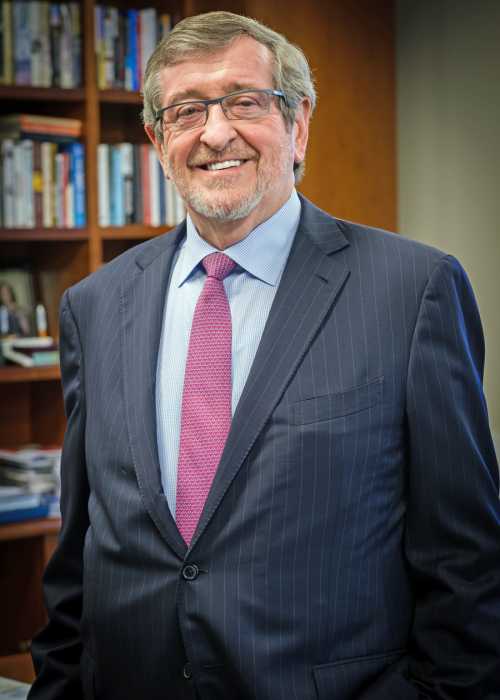
Michael Dowling
President and CEO, Northwell Health

Michael Dowling is one of health care’s most respected voices. As president and CEO of Northwell Health for 22 years, he has demonstrated invaluable leadership in overseeing an expanding clinical, research, and academic enterprise. With an 85,000-plus workforce, Northwell is the largest health care provider and private employer in New York, caring for more than two million people annually at a 21-hospital network, more than 900 outpatient facilities, 220 primary care practices, and 50-plus urgent care centers.
Do you have advice for those interested in joining the health care field?
Our work in health centers on curiosity, innovation, and compassion. I would urge those interested in the field to speak to as many people in the field as possible to learn about the full scope of our work – and the role that resilience and optimism play as we encounter the constantly evolving needs and challenges of the communities we serve.
How can policymakers support New York’s health care system?
Policymakers are important partners. In addition to shaping regulation and playing a role in funding, they deeply understand the issues in their communities, where our patients live and work. They can help us see where social determinants of health affect health, how we might help address public health issues – from nutrition, housing, and poverty, to addiction, or gun violence – as a health system, and how we can better reach patients where they are.
What is the most important lesson you’ve learned in your career so far?
My career has seen its share of public health challenges, from AIDS and crack use in the 1980s and 1990s, to the more recent COVID-19 virus and gun violence. The key to getting through those times has been to be as prepared as possible while maintaining our compassion, flexibility, and resilience so we can be ready for innovative solutions when they arise.


